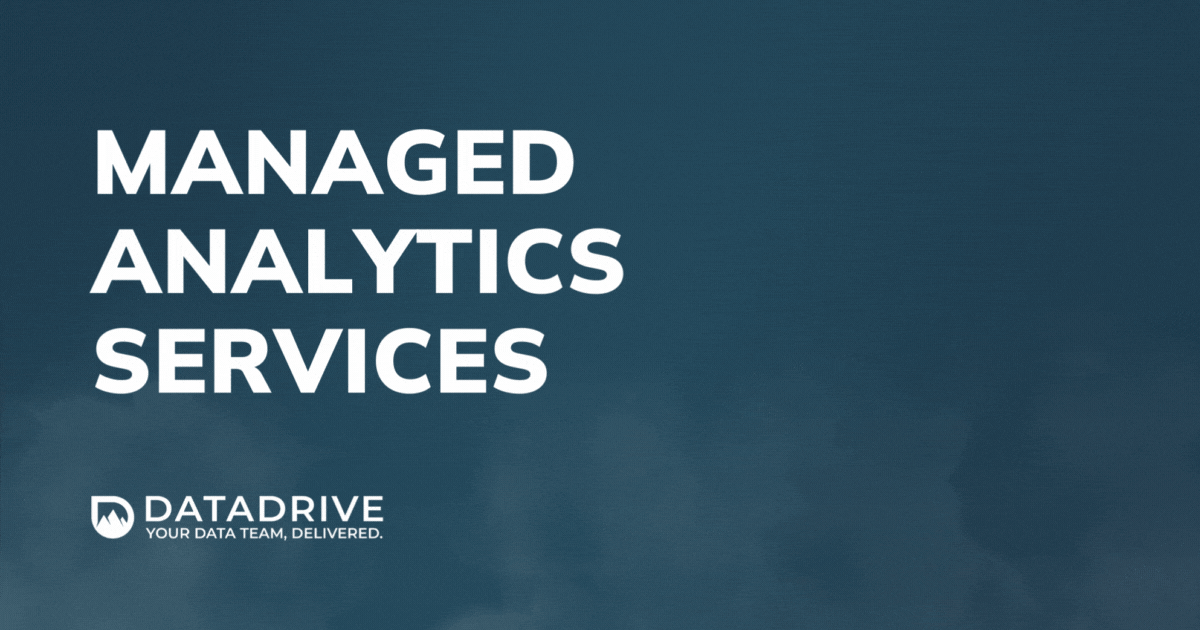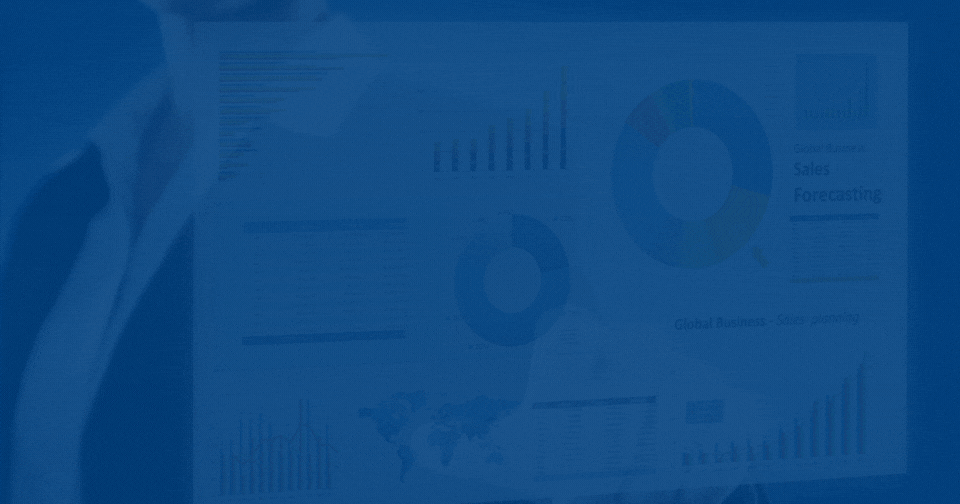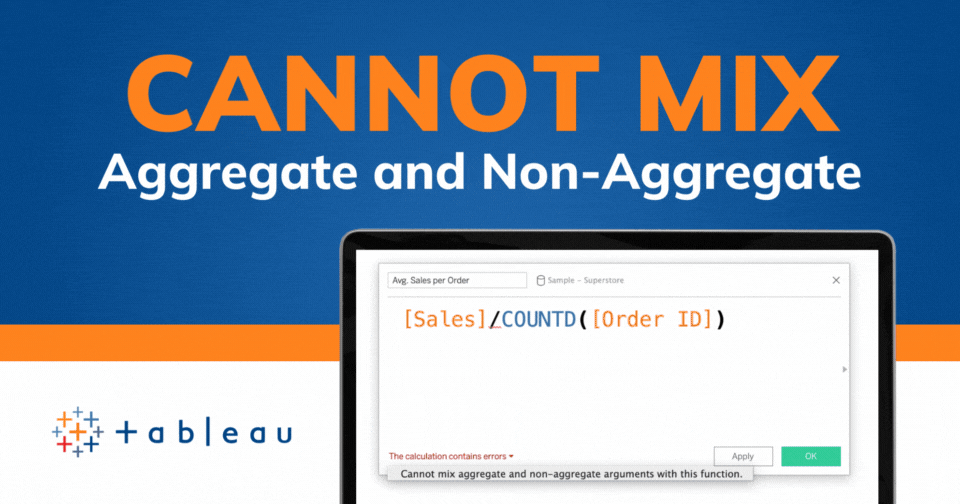Tableau Conference 2025 | Know Before You Go
If you’re a data enthusiast, analytics professional, or just someone curious about Tableau’s latest innovations, the Tableau Conference 2025 is your...
11 min read
 Luke Komiskey
Feb 19, 2024
Luke Komiskey
Feb 19, 2024

Why should managed analytics be a cornerstone of your data strategy? Companies face increasingly growing, complex data challenges, yet harnessing data as a competitive asset has never been easier. Managed analytics services cut through the complexity (and long implementation timelines) of building modern data infrastructure, offering a cost-effective way to deliver insights across an organization with minimal in-house effort.
Managed analytics services provide organizations with a full-service data analytics solution and fractional data team, offering benefits such as cost savings, accelerated insights, and enhanced decision-making capabilities by transforming data into insights.
Managed data analytics are well-suited for organizations seeking to build competitive data assets to inform internal teams and/or monetize external audiences without the hassle and long implementation timelines of hiring and retaining expensive data professionals and configuring multiple data vendor technologies successfully.

Managed services provide a fully managed data analytics and reporting capability to transform data into insights without the traditional risks of hiring data teams and managing complex infrastructure. It’s a unique blend of a proven, pre-vetted data architecture and automation framework coupled with ongoing training and support from an experienced data team, offering a reduced total cost of ownership and prioritizing self-service for all stakeholders to take action with data.
Instead of the traditional approach of hiring data teams and embarking on a multi-year implementation, managed analytics service is a complete solution that handles all aspects of a business's data analytics - from data integration, automation, and cloud warehousing to advanced analytics and interactive dashboard reporting.
Streamlined Data Processes: Pre-built data connectors and ELT (extract, load, transform) processes and automation ensure efficient, error-free data management across disparate business applications.
Cost-Effective: Eliminate the need for substantial upfront investments in hiring specialized staff or purchasing multiple expensive software subscriptions to build a data capability from scratch.
Scalability and Flexibility: Easiliy scales data analytics capabilities up or down based on their evolving business needs without worrying about the underlying infrastructure.
Access to Expertise: Managed service providers bring a wealth of multi-implementation experience and specialized data knowledge, instantly giving businesses access to top-tier analytics expertise.
Focus on Core Business: By outsourcing data analytics, companies can focus more on their core business activities, leveraging data-driven insights for growth and innovation.
Implementing managed analytics is a partnership journey because data constantly changes, new sources arise, and business needs evolve with increased adoption. A managed analytics services provider works closely with the business to understand its unique needs, drive data quality processes, and integrate the analytics solution seamlessly into existing business systems and processes.
Data analytics investments are successful when they can be tied to real business value through revenue generation or efficiency gains - and many data implementations fail to deliver due to a lack of a defined data strategy. The ongoing, mutual collaboration with managed analytics services providers ensures that all data assets are actionable and aligned with business goals.
Managed analytics service offerings deliver a less risky way to integrate disparate business application data and create a trusted data reporting capability for both internal and external stakeholders. For many organizations, bringing in the right talent and technology to create trusted insights is time-consuming and cost-prohibitive, with no guarantee of implementation success. Managed services deliver a proven playbook to deploy actionable insights, data security, and analytics capabilities with a lower total cost of ownership of traditional methods.

Data assets like executive dashboards and external data products are catalysts for informed decision-making. They guide businesses through the data analytics process of seeing, understanding, and taking action with data to reveal hidden insights, confirm intuition, and question the status quo.
As a result of data-backed decisions, businesses can transition from relying on the intuition of a few to using quantitative insights and data-driven evidence to scale across an organization, leading to more informed (faster) decision-making.

Managed analytics services give organizations immediate access to a team of data experts specialized in various areas of analytics, including data integration, data visualization, business intelligence, and advanced analytics. This expertise allows for leveraging best practices and the latest technologies for self-service analytics tools without the need for extensive in-house training or hiring.
Businesses benefit from the service provider's knowledge of industry trends, tools like Tableau, Snowflake, and dbt, and their experience in managing complex data challenges. This access enables companies to quickly adapt to new data insights and methodologies, ensuring they are always at the forefront of analytics capabilities.

By outsourcing analytics functions to a managed service provider, organizations can concentrate their efforts on their core business operations. This strategic reallocation of resources means that management and staff can focus on business objectives and innovation without being bogged down by the intricacies of data management, analytics infrastructure, and the constant evolution of data technologies.
It ensures that the organization's human and financial resources are optimized for its primary mission, enhancing productivity and competitive advantage.

Managed analytics services can significantly reduce the time it takes to go from conceptualizing a data project to realizing actionable insights. With established methodologies and ready access to technology and skills, these services can fast-track the deployment of analytics solutions. This swift implementation is crucial for businesses to adapt and respond to market changes quickly can be a significant competitive edge. Faster implementation also means quicker realization of ROI from analytics investments.

Data governance and security are paramount in today's digital landscape. Managed service providers implement robust data governance frameworks and security measures to ensure data integrity, compliance, and protection against breaches. They bring to the table expertise in managing data across its lifecycle, enforcing data quality standards, and ensuring that data use complies with relevant regulations (e.g., GDPR, CCPA). This comprehensive data governance and security approach mitigates risks and protects organizations from data-related liabilities.

Managed analytics services streamline the process of turning data into action. These services can uncover valuable insights more rapidly than traditional in-house methods by utilizing advanced analytics techniques and tools. This acceleration is facilitated by the service provider's expertise in data science and machine learning, which allows for the efficient data analysis of large datasets and identifying patterns and trends that might not be visible through standard analysis.
Accelerated insight generation enables organizations to make faster, evidence-based decisions to improve operational efficiency, enhance customer experiences, and drive innovation.

Investing in in-house analytics capabilities comes with significant risks, including the potential for technology obsolescence, underutilization of expensive resources, and the challenge of keeping up with rapid advancements in data technologies. Managed services mitigate these risks by offering a flexible and scalable approach to analytics.
Organizations can tap into the latest analytics technologies and methodologies without the upfront capital investment and long-term commitment. This model allows for predictable costs, scalability to adjust to changing needs, and the ability to disengage without incurring sunk costs, thereby reducing the overall risk profile of analytics investments.
Managed analytics services provide an end-to-end data platform to deliver trusted insights to end users. They encompass a range of services from data engineering to business intelligence and advanced AI-driven analytics.

Data engineering and integration is the foundation for managed analytics services. It involves connecting disparate application data and operationalizing data feeds through automated refreshes to break down enterprise data silos. Integration is the backbone of your analytics operation, ensuring that the data flows smoothly and is ready for data analysis for all levels of the organization.

Cloud data warehousing provides the organization and data quality/governance for organizational data with the scale and speed of cloud computing. It systematically collects, stores, and retrieves data from diverse sources, serving as a dependable repository for information. When built correctly, data warehouses create the single source of truth that organizations rely on within their data analytics platform.

Business intelligence and reporting analytics provide visibility into business operations through interactive dashboards and compelling data visualizations to identify trends. The power of data visualization is presenting complex, large data sets into clear, intuitive visuals that aid in faster interpretation and decision-making.
Beyond the power of interactive dashboards, data governance frameworks deliver the trust and confidence for internal teams and customers to make sound decisions with presented information. With clear user guidelines and documentation, analytics reporting can become a source of trust for data-driven conversations.

Machine Learning and Artificial Intelligence (AI) are revolutionizing how businesses approach data analytics, offering unprecedented insights and predictive capabilities. These advanced technologies enable the analysis of vast, complex datasets, uncovering patterns and trends that might be invisible to the human eye.
The real strength of machine learning lies in its ability to learn and improve over time, constantly refining its analysis and predictions based on new data. Managed analytics services provide the data foundation to feed into ML/AI algorithms to make faster, more accurate predictions.

The value of a proficient data team ultimately drives an analytics platform's success. To make deployments successful, a team of data experts with nuanced skillsets across providing insights and data analysis, handling data infrastructure, and integrating analytics into your applications and systems.
One of the greatest strengths of managed services is making the breadth of skills needed for a strong data team available so customers can focus on their core business functions.
While managed services offer many benefits, traditional approaches are available to build a data capability.
Traditionally, businesses would invest in an in-house team of data professionals - business analysts, data engineers, and data scientists. While this approach brings expertise under your roof, it comes with its own set of challenges. For starters, the average salaries for these roles can be substantial, putting a strain on your budget. Furthermore, building a team is just the first step. You must also invest in data storage, integration, and reporting platforms. The time from hiring to seeing a return on your data investment can stretch over months if not years.
While this option gives you complete control over your data analytics process, it comes with challenges like finding the right talent, managing costs, and staying up-to-date with the latest technologies.
Another route is hiring short-term consultants. These experts bring experience and can kickstart your data initiatives. However, this often comes with a higher price tag.
More importantly - once their project concludes, you're left with systems and data assets that need ongoing maintenance and evolution. The project-based nature of this approach often falls short in addressing the continuously evolving and growing business needs - leaving data-driven cultures to never truly take off.
Navigating the complexities of assembling a modern data stack from multiple vendors is a challenging time-sink that includes intricate contract negotiations, compatibility issues across different technologies, and unpredictable budgeting due to varying pricing models. These hurdles demand extensive time and resources for effective management and delay the realization of value from data investments.
Nuanced integration difficulties with your organization's unique applications can further complicate the operation of the data infrastructure, requiring additional efforts for custom solutions. The administrative burden of continuous vendor management distracts from core business objectives.
A managed analytics provider like DataDrive offers a streamlined alternative, bundling essential analytics tools into a single, predictable monthly fee. This approach simplifies budgeting and financial planning and accelerates the deployment and utilization of data insights, enabling organizations to focus on strategic growth without the operational overhead of managing multiple vendor relationships.

Managed services aren’t a one-size-fits-all solution. They offer significant value in scenarios requiring specialized analysis and can be a boon for small/mid-sized businesses aiming to offer a more personalized customer experience. But when do they work well?
Managed analytics services can be a game-changer for organizations overwhelmed by the manual effort required to manage, analyze, and report data using spreadsheets. This scenario often leads to inefficiencies, errors, and delays in decision-making. Managed services introduce automated tools and processes that streamline data handling, transform raw data into insightful, actionable information, and eliminate the tedious, error-prone tasks associated with spreadsheet management. This shift saves time and enhances the accuracy and reliability of data insights.
Organizations using a variety of business applications often face challenges in integrating these systems to achieve a unified view of their data. Managed analytics services excel in connecting and harmonizing data from disparate sources, enabling seamless data flow and consolidated reporting.
Custom integrations are crucial for gaining holistic insights and identifying cross-functional opportunities (e.g. seeing a customer's entire journey). By leveraging the expertise of managed services, businesses can overcome the technical barriers to data integration and unlock the full potential of their data ecosystem.
For businesses that recognize the value of analytics but do not consider it their core capability, managed analytics services offer a solution. This approach allows companies to access advanced analytics capabilities without diverting significant resources from their primary business functions.
Managed services provide the expertise and technology necessary to implement sophisticated analytics strategies, enabling businesses to benefit from data-driven insights while focusing on their core competencies. This partnership ensures that analytics remains a priority and drives value, even if it's not an in-house expertise.
The competition for skilled data professionals is fierce, and many organizations struggle with hiring and retaining the talent necessary to support a robust analytics function. Managed analytics services mitigate this challenge by providing access to a team of experienced data experts as part of the service offering.
This arrangement removes the burden of recruiting, training, and retaining a specialized in-house team, and it ensures that businesses can consistently leverage high-quality analytics expertise. By relying on managed services, companies can navigate the talent shortage and maintain a competitive edge in analytics without the HR challenges.

A common misconception is that opting for managed services limits an organization's ability to customize solutions to fit their unique needs. However, top-tier managed analytics providers, like DataDrive, prioritize flexibility and customization within their service offerings. They work closely with clients to understand their specific requirements and tailor their analytics solutions accordingly, ensuring that the analytics capabilities align with the organization’s strategic goals and integrate seamlessly with existing systems and processes.

Entrusting sensitive data to a third-party provider can raise concerns about data security and privacy. Managed analytics providers are acutely aware of these concerns and implement stringent security measures, including data encryption, secure data transfer protocols, and compliance with international data protection regulations (such as GDPR and CCPA).

The fear of becoming too dependent on a service provider for analytics capabilities is a valid concern for businesses. To mitigate this, DataDrive ensure transparency and flexibility in their engagements with defined service level agreements for break/fix support. Comprehensive training and ongoing support to client teams create a collaborative environment that empowers businesses to develop their in-house analytics expertise over time if they choose.
Additionally, clear service agreements outline the scope of services, ensuring businesses retain control over their data and analytics processes.

Prospective clients often worry about being locked into long-term contracts that may not align with their evolving business needs. Managed analytics services typically offer scalable solutions designed to grow with your business. Flexible engagement models allow for adjustments to the service scope, ensuring organizations can scale up or down based on their current needs without facing restrictive long-term commitments. This scalability ensures that businesses can leverage analytics services in a way that matches their pace of growth and changing requirements.

Concerns about the ability of managed analytics solutions to integrate with existing IT infrastructure and data systems are common. Providers like DataDrive have extensive experience integrating their solutions with a wide range of systems and platforms. This ensures a seamless data flow between the managed service and the client’s existing databases, CRM, ERP systems, and more, maintaining a cohesive and efficient operational environment.

Outsourcing analytics doesn't mean giving up on your core data capabilities; it's about enhancing them. Managed services like DataDrive supplements your existing team with specialized expertise and advanced technologies, enabling you to focus on strategic decision-making while maintaining control over your data. This approach allows you to leverage industry best practices and scale your analytics efforts efficiently, ensuring your organization remains agile and competitive.
By partnering with a managed service provider, you're not relinquishing your data's strategic value—you're amplifying it, ensuring that your business can navigate the complexities of today's data-driven landscape more effectively.
Making smart decisions and staying ahead of the competition relies heavily on using data effectively. But turning data into actionable insights can be tricky, especially with the challenges of putting together different data sources and finding the right people to manage and analyze that data. Managed analytics services help with these issues, providing the skills, tools, and strategic advice needed to make the most out of data.
DataDrive is leading the way with managed solutions designed specifically for your business's needs. Whether you're dealing with too many manual spreadsheets, trying to link up various business apps, or wanting to focus on analytics, even if it's not your main strength, DataDrive is ready to help you tackle these challenges and turn them into advantages for growth and efficiency.
Transform your data into actionable insights today! As the pioneer of managed analytics services, DataDrive is your experienced analytics team unlocking data-driven success for organizations without the hassles of building yourself. Contact us today!
What are managed analytics services?
Managed analytics services involve delegating data analytics functions to a service provider, who provides organizations with a proven data analytics infrastructure, process, and an experienced data team to transform data into valuable insights. This can be a beneficial option for businesses looking to leverage data without investing in an in-house team.
What are the alternatives to managed analytics services?
The traditional alternatives to managed analytics services are either building an in-house data team to construct an integrated data platform from scratch or onboarding project-based data consultants to build out a data solution to hand off. Each approach has implications to delivery timeline, total cost of ownership, and ongoing support risk that qualified managed services providers address with fixed pricing, proven business processes, and ongoing support obligations.
When is it ideal to use managed analytics services?
It is ideal to use managed analytics services when an organization wants to leverage a proven data analytics infrastructure and access to an experienced data team without the hassle of hiring and managing data professionals and complex data infrastructure.
-2.gif)
If you’re a data enthusiast, analytics professional, or just someone curious about Tableau’s latest innovations, the Tableau Conference 2025 is your...

Tableau Plus is the new premium offering from Tableau, a leading data visualization and business intelligence platform. It builds upon the...

If you've spent any time working with Tableau, you've likely encountered the dreaded "Cannot Mix Aggregate and Non-Aggregate Arguments" error. It's a...